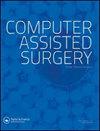Mental workload prediction model based on information entropy
IF 1.9
4区 医学
Q3 SURGERY
引用次数: 3
Abstract
Abstract This paper introduces the concept of information entropy in studying mental workloads to predict the mental workload of an urban railway dispatcher and thereby ensure safe rail system operation. This study combines factors that can influence mental workload, including visual behaviors required for dispatchers to obtain information, information display duration, and the amount of information in order to establish a comprehensive mental workload prediction model. Experimental monitoring tasks were carried out on a simulation dispatch interface platform to verify the model’s validity. Three assessment methods (task performance assessment, subjective assessment, and physiological assessment) were adopted to measure the mental workload levels of dispatchers under different task conditions. The results demonstrate that the model’s theoretical prediction value significantly correlates with the various experimental results, thereby verifying the model validity and indicating that it can be used to predict the mental workload for different dispatch tasks, to provide a reference for work performance evaluation, and in designing optimized dispatch display interfaces.基于信息熵的心理工作量预测模型
摘要:本文将信息熵的概念引入到心理负荷研究中,以预测城市轨道交通调度员的心理负荷,保证轨道交通系统的安全运行。本研究结合调度员获取信息所需的视觉行为、信息显示时间、信息量等影响心理工作量的因素,建立综合心理工作量预测模型。在仿真调度接口平台上进行了实验监测任务,验证了模型的有效性。采用任务绩效评估、主观评估和生理评估三种评估方法,对不同任务条件下调度员的心理工作量水平进行测量。结果表明,该模型的理论预测值与各项实验结果显著相关,从而验证了模型的有效性,表明该模型可用于预测不同调度任务的心理工作量,为工作绩效评估和优化调度显示界面的设计提供参考。
本文章由计算机程序翻译,如有差异,请以英文原文为准。
求助全文
约1分钟内获得全文
求助全文
来源期刊

Computer Assisted Surgery
Medicine-Surgery
CiteScore
2.30
自引率
0.00%
发文量
13
审稿时长
10 weeks
期刊介绍:
omputer Assisted Surgery aims to improve patient care by advancing the utilization of computers during treatment; to evaluate the benefits and risks associated with the integration of advanced digital technologies into surgical practice; to disseminate clinical and basic research relevant to stereotactic surgery, minimal access surgery, endoscopy, and surgical robotics; to encourage interdisciplinary collaboration between engineers and physicians in developing new concepts and applications; to educate clinicians about the principles and techniques of computer assisted surgery and therapeutics; and to serve the international scientific community as a medium for the transfer of new information relating to theory, research, and practice in biomedical imaging and the surgical specialties.
The scope of Computer Assisted Surgery encompasses all fields within surgery, as well as biomedical imaging and instrumentation, and digital technology employed as an adjunct to imaging in diagnosis, therapeutics, and surgery. Topics featured include frameless as well as conventional stereotactic procedures, surgery guided by intraoperative ultrasound or magnetic resonance imaging, image guided focused irradiation, robotic surgery, and any therapeutic interventions performed with the use of digital imaging technology.
 求助内容:
求助内容: 应助结果提醒方式:
应助结果提醒方式:


